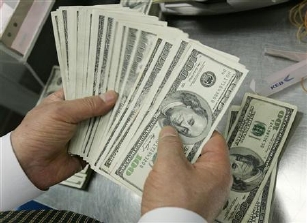Sudan moves to curb imports as currency continues to weaken
September 19, 2010 (KHARTOUM) – The Sudanese finance and national economy minister Ali Mahmood Abdel-Rasool announced today a series of measures aimed at reducing imports to prevent further deterioration in the foreign currency reserve positions as the Sudanese pound continues to slide in the unofficial market.
 Sudan’s official news agency (SUNA) said that Abdel-Rasool held a meeting today with officials from the Commerce ministry, Central Bank, Customs authorities and the employers union.
Sudan’s official news agency (SUNA) said that Abdel-Rasool held a meeting today with officials from the Commerce ministry, Central Bank, Customs authorities and the employers union.
The official said that the imports tab reached $4 billion during January-May 2010 and is expected to reach $11 billion by year end. According to him, the government will now increase customs on all imported goods with the exception of food items, wheat, sugar and capital good used by local manufacturers.
Abdel-Rasool said that these measures are necessary to preserve the FOREX reserves. He projected that this will result in a 15%-20% drop in imports.
In a report released last month, the International Monetary Fund (IMF) stressed the urgency of rebuilding Sudan’s sharply declining reserves of foreign currency and undertake further measures to keep borrowing under control.
The IMF report showed a sharp decline n reserves held by the Sudan central bank from $1.58 billion in 2006 to $390 million in 2009 which is estimated to cover a little over two weeks of imports.
This weekend, the Sudanese pound reached new lows exchanging at 3.00 to the dollar at the unofficial market amid widespread rumours that the central bank will resort to currency devaluation. Such a move usually leads speculators to dump their holdings of local currency.
Sudan runs a so-called managed float system where the central bank calculates an indicative rate based on previous day transactions and intervenes on the market if quotes break away from a plus/minus 3 percent corridor around that rate.
Travelers from Sudan are only permitted to take a maximum of the equivalent of 2,000 Euros of any foreign currency out of Sudan after providing the necessary documentation to justify the need for it.
The travellers will be able to buy the foreign currency before leaving the country but can only receive it at the airport after clearing immigration and customs.
Abdel-Rasool declared a countrywide ban on imports of second-hand automobiles which costs $958 million in 2009. Furthermore, customs on imported cement will be increased from 25% to 40% with the exception of white cement resistant to moisture, which is not produced domestically. On the other hand, duties on cement produced locally will be reduced from 20% to 5%.
The finance minister also said there would be an increase in customs on chocolate and ceramics from 15% to 25%. Development tax on imported goods will go up from 5% to 10%.
He disclosed that 84% of consumption goods will not be impacted by the hikes in customs and duties. Moreover, a long-term plan will be implemented to encourage local production and reduce imports, increase production of wheat and developing non-oil exports such as agriculture, vegetation and livestock.
The Sudan central bank on its end is expected to undertake other measures related to the banking sector, Abdel-Rasool added but did not elaborate.
The Sudanese finance minister ruled out any “economic collapse” in the event that the South votes for independence in the January 2011 referendum but acknowledged the possibility of a inflation which will be combated by some unspecified measures.
In 2011 the people of South Sudan will vote in a self determination referendum in order to decide whether they want to remain as part of united Sudan or create their own state. It is widely expected that secession will be the overwhelming choice of Southerners.
The separation of Sudan into a two states will deny the North billions of dollars in revenue generating from vast oilfields in the south of the country. Currently the North and the South are splitting the proceeds of crude in accordance with the Comprehensive Peace Agreement (CPA) signed in 2005.
(ST)

Lual Peter Dau
Sudan moves to curb imports as currency continues to weaken
Great Mr Minister,
How do you expect the Country to move it economices series when it use two foreign currency?
That is US Dollar and Erupean Euros. make sure , and i hope, the coming determination of the South Sudan as self autonomy will set you a bad example for inflation.
My Point of view is that, it could be better if the Country can used one foreign Currency than two. that will be able to save as in this few months coming.
Cheers